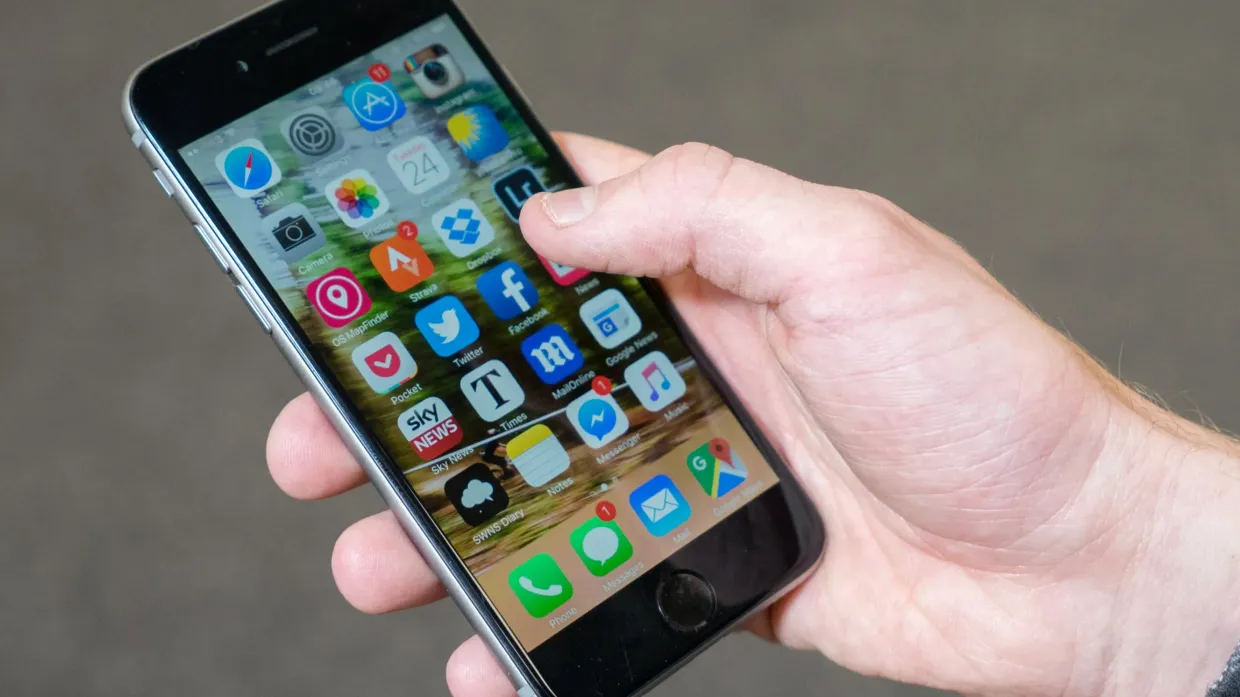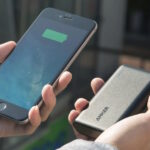Last week, numerous mobile phone users in the UK experienced significant disruption to their services. A major outage affected customers of Three UK, one of the nation’s prominent mobile network providers.
The problems began early on a Wednesday morning, specifically at 8 a.m. ET. This widespread disruption quickly escalated, with more than 9,300 issues logged on Downdetector, a widely used platform for reporting service outages. The overwhelming majority of these reports indicated that customers were “struggling to make phone calls,” signaling a critical failure in voice services.
The frustration among affected individuals quickly spilled over onto social media platforms. Angry customers flooded various channels with complaints. One user articulated the widespread issue by stating, “What’s going on with the network guys? I can’t receive or make calls.” Another echoed the sentiment, noting, “No incoming or outgoing calls are becoming regular occurrences now. Time to switch.” During the peak of the outage, Three UK acknowledged the problem, issuing a statement:
“We’re aware of an issue affecting voice services and and are working hard to fix it. Data services are working normally. Please accept our apologies for any inconvenience caused.” The network confirmed that the critical voice service issue was finally resolved at approximately 10 p.m. that same evening, bringing an end to nearly 14 hours of disruption for many. This incident, while resolved, immediately raised questions among customers about potential compensation for the loss of essential services.
Compensation for Mobile Outages: Three’s Stance
Following the significant disruption, one of the most pressing questions for affected Three UK customers has been regarding compensation. Unlike fixed-line internet or landline services, mobile networks operate under different regulatory guidelines for automatic compensation.
No Automatic Compensation Scheme for Mobile
Many customers who experience service disruptions naturally wonder if they will be automatically compensated for their inconvenience and loss of service. However, it’s crucial to understand the current regulatory landscape in the UK. The communications regulator, Ofcom, indeed operates an “automatic compensation scheme” for customers. This scheme is specifically designed to provide redress for those who have suffered internet or landline outages. Under this framework, providers are often required to pay a set amount of compensation for service loss, delayed repairs, or missed appointments without the customer needing to actively request it.
Unfortunately for mobile users, the “mobile customers aren’t covered by the scheme.” This means that if you were impacted by the recent Three UK voice service outage, you “won’t be able to use this” automatic compensation mechanism. The lack of an automatic scheme for mobile services has been a point of contention for some consumer advocates, arguing that mobile connectivity is just as essential as fixed-line services in modern life. As a result, customers cannot simply wait for a credit to appear on their bill.
Instead, the onus falls on the individual to proactively seek redress. This distinction in compensation policies highlights a key difference in how landline/internet and mobile services are regulated in terms of customer rights during outages, making the process for mobile users more reliant on direct engagement with their provider.
Case-by-Case Basis: Three’s Approach
Given the absence of an automatic compensation scheme for mobile network disruptions, Three UK has clarified its approach to addressing customer grievances arising from last week’s significant voice service outage. The Sun, a major UK newspaper, understands that customers will now be “given compensation on a case-by-case basis.” This means that there will be no blanket payout for all affected users. Instead, each individual claim will be assessed on its own merits, taking into account the specific circumstances of the disruption experienced by that customer. This approach aligns with advice from industry experts.
Simrat Sharma, a mobiles expert from Uswitch, a popular comparison website, further elaborated on Ofcom’s general guidance. She stated that “Ofcom advises that compensation for mobile signal outages is ‘dependent on the circumstances’.” This implies that factors such as the duration of the outage, the specific services affected (e.g., voice, data, or both), and any demonstrable impact on the customer’s ability to conduct essential activities might influence whether compensation is awarded and its potential value.
While minor inconveniences may not always warrant compensation, Sharma emphasized that “in extreme cases where repairs take much longer, you may be entitled to an additional refund or account credit.” Her direct advice to affected customers is clear: “If you’ve experienced huge disruption from the outage, don’t hesitate to contact your provider to see if they can help.” An Ofcom spokesperson had also previously advised customers to “get in touch with Three directly” if affected and to “consider logging a formal complaint” if dissatisfied with the initial response. This proactive approach by customers is crucial in a case-by-case compensation system.
Steps to Lodge a Complaint and Seek Compensation
Since compensation from Three UK will be handled on an individual basis, customers who were significantly impacted by the voice service outage need to proactively take steps to file a complaint and request redress. While there’s no guarantee of a payout, a well-documented claim can certainly improve your chances.
Directly Contacting Three UK
The initial and most crucial step for any customer seeking compensation is to “request compensation directly” from Three UK. Since compensation is being paid “on a case-by-case basis,” it’s important to understand that “there’s no guarantee you’ll get any.” However, if you were genuinely impacted by the outage, it is “always worth asking.” Three provides multiple channels for customers to initiate their complaint and compensation request. You can utilize the “Live Chat” feature conveniently located on Three’s official website. Alternatively, customers can dial 333 directly from their mobile phone to connect with customer service and file a complaint.
When contacting Three, it is highly advisable to have as much supporting information as possible. You will ideally “need evidence of any complaint” to bolster your case. This includes taking screenshots of the outage on your phone, particularly if you saw error messages or no service indicators. Crucially, you should “note how long your service was down,” providing specific times and dates if possible.
Furthermore, if the outage resulted in “extra costs” for you, such as needing to use an alternative paid service or incurring charges due to missed calls for work, you should be “clear about any extra costs you faced because of the outage as you might be able to claim them back.” Keeping receipts or records of these additional expenses will be vital evidence. Being prepared with this detailed information will streamline the complaint process and strengthen your position when negotiating for compensation.
Escalating Your Complaint: Alternative Dispute Resolution (ADR)
If your initial attempt to resolve the issue directly with Three UK proves unsatisfactory, or if “your provider hasn’t fixed the issue on time or you’re unhappy with the delay,” there’s a formal escalation process you can follow. This involves taking your dispute to an Alternative Dispute Resolution (ADR) scheme. Before you can approach an ADR scheme, you typically need to allow your provider eight weeks to resolve your complaint internally. If the issue remains unresolved after this period, or if you receive a final response that you are unhappy with, you can request a “deadlock letter” from Three. This letter confirms that the provider considers the complaint closed from their end and that you have exhausted their internal complaints procedure.
ADR schemes are a vital recourse for consumers. They are “free” to use and function as an “independent mediator between you and your provider when complaints can’t be settled directly.” This impartial body will review the evidence from both you and Three before making a decision. In the UK, there are two primary ADR schemes that cover telecommunications services: the Communications Ombudsman and CISAS. By regulation, all telecom providers operating in the UK “must be part of one” of these schemes. You can easily check which scheme covers your provider by visiting ofcom.org.uk.
Specifically for Three UK customers, the good news is that “Three is a member of the Communications Ombudsman.” To file a complaint with them, you can conveniently fill out the claims form directly on their website by visiting commsombudsman.org/raise-dispute/three, or if you prefer, you can send a letter detailing your complaint. The Communications Ombudsman will then thoroughly “look at the evidence from you and your provider before making a decision,” which could include a judgment on whether you are “due compensation or a refund.” This independent review process provides a crucial safety net for consumers seeking fair resolution.
Understanding Compensation Amounts and Expectations
While the process for claiming compensation is clear, managing expectations regarding the amount of compensation is also important. The case-by-case approach means outcomes will vary.
Factors Influencing Compensation Payouts
When it comes to compensation for mobile outages, the “case-by-case basis” approach adopted by Three UK means that the amount, if any, a customer receives will depend heavily on the specific circumstances of their disruption. There isn’t a fixed tariff like in the automatic compensation scheme for broadband. Instead, various factors will influence the compensation payout. Key elements include the duration of the outage – a few hours of disruption might lead to a smaller credit than a full day without service.
The impact on the customer’s daily life or work is also critical. For instance, if the outage prevented someone from making emergency calls, attending critical work meetings, or caused demonstrable financial loss (e.g., missed business opportunities, costs for alternative communication), this strengthens the claim.
The type of service affected also plays a role. While the recent outage primarily impacted voice calls, if a customer could prove that crucial data services were also affected, that could be a factor. Evidence of additional costs incurred directly because of the outage, such as purchasing a temporary SIM card from another provider or using paid Wi-Fi services for calls, would be highly relevant.
Furthermore, the customer’s history with Three, including previous complaints or length of service, might subtly influence the provider’s willingness to offer more generous compensation, though this is not a guaranteed factor. The outcome will likely involve a pro-rata refund for the period of service loss, a credit added to the customer’s account, or in some severe cases, a one-off payment. It’s important to articulate clearly how the outage specifically affected you and to provide as much verifiable detail as possible.
Setting Realistic Expectations
Given that compensation is not automatic and is determined individually, customers should approach the process with realistic expectations. While the principle of being compensated for significant service disruption is fair, the outcome is not guaranteed, and the amount may not always fully cover perceived losses. The phrase “compensation on a case-by-case basis” inherently implies variability. It is unlikely that Three will issue large cash payouts unless direct, significant financial losses can be unequivocally proven. More commonly, compensation might come in the form of a credit on a future bill or a minor reduction in the monthly subscription fee for a short period.
The primary goal of contacting Three should be to report the impact and seek fair redress, rather than anticipating a windfall. If the direct complaint to Three does not yield a satisfactory result, leveraging the Alternative Dispute Resolution (ADR) scheme, specifically the Communications Ombudsman for Three customers, provides an independent avenue for review. This external body ensures impartiality and a fair assessment of the evidence from both sides.
Their judgment will be binding on Three, offering a definitive resolution. However, even ADR schemes tend to award compensation based on actual inconvenience and proven loss, rather than punitive damages. Therefore, while it is always advisable to pursue compensation if you were genuinely affected, understanding the likely forms and typical amounts of compensation can help manage expectations throughout the process.
Empowering Three UK Customers
The recent widespread voice service outage on the Three UK network caused significant frustration for thousands of mobile customers. Unlike landline or internet services, mobile customers are not covered by Ofcom’s automatic compensation scheme, meaning that affected individuals must proactively seek redress. Three UK has confirmed that compensation will be handled on a “case-by-case basis,” necessitating direct engagement from customers.
To increase the likelihood of receiving compensation, impacted users should meticulously document the outage’s duration and any incurred extra costs. This evidence can then be presented to Three UK through their Live Chat feature or by calling 333. Should the initial complaint prove unsatisfactory after eight weeks, customers have the right to escalate their dispute to an independent Alternative Dispute Resolution (ADR) scheme, such as the Communications Ombudsman, of which Three is a member.
This free service provides impartial mediation and a binding judgment. While compensation is not guaranteed and its amount will vary, understanding these steps empowers Three UK customers to effectively advocate for themselves and seek appropriate redress for the disruption they experienced, ensuring accountability from their service provider.








